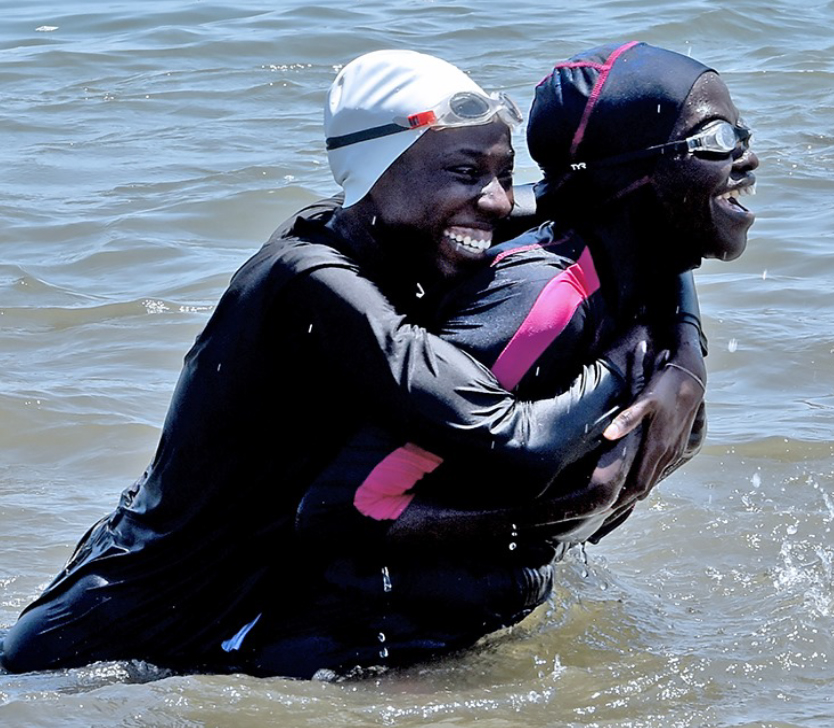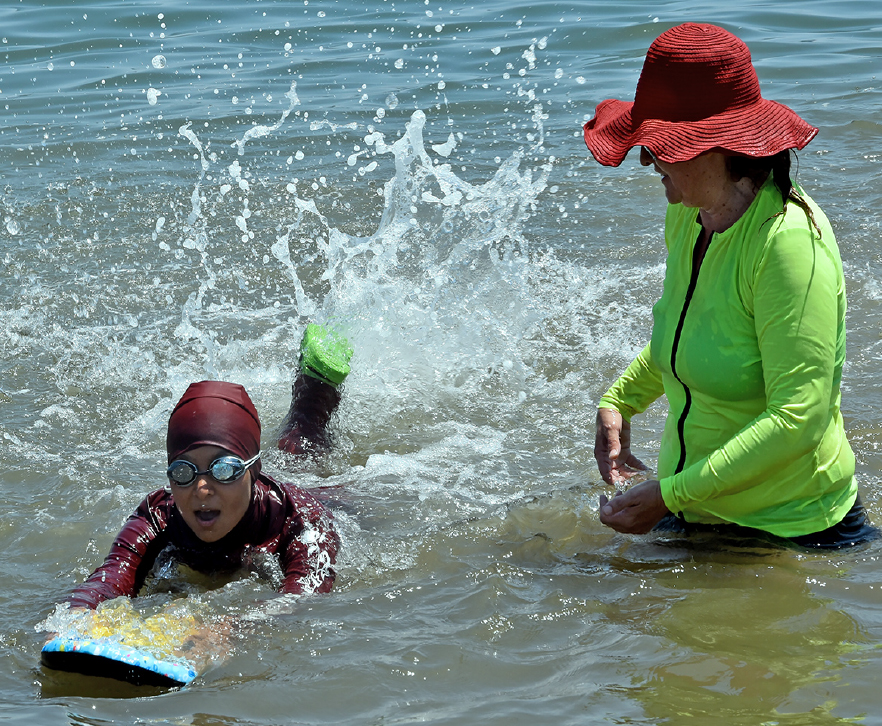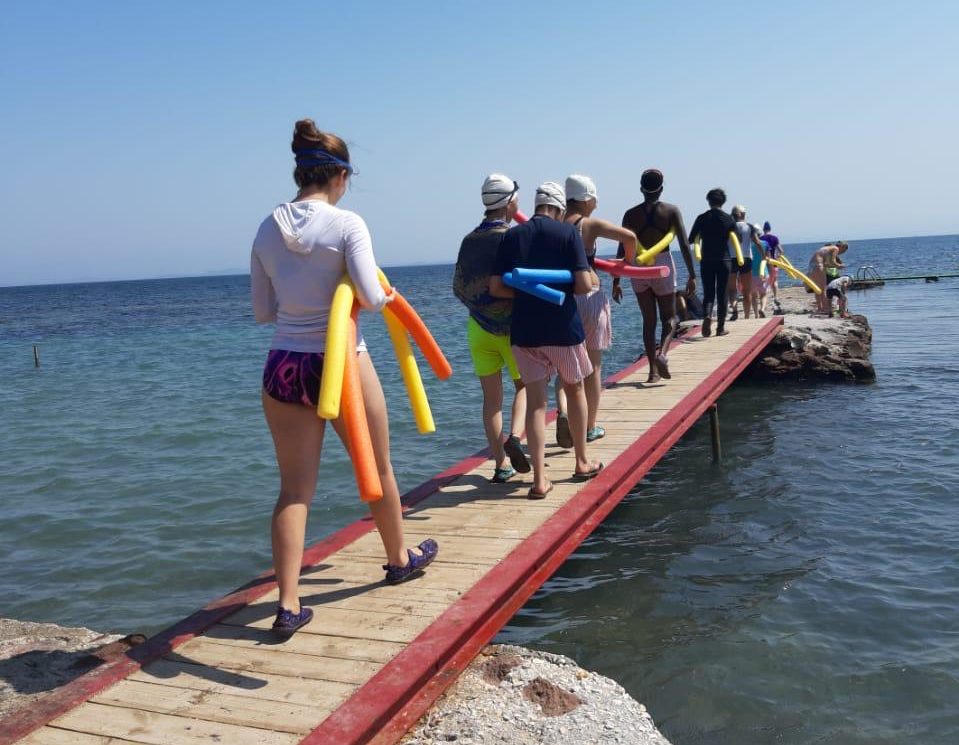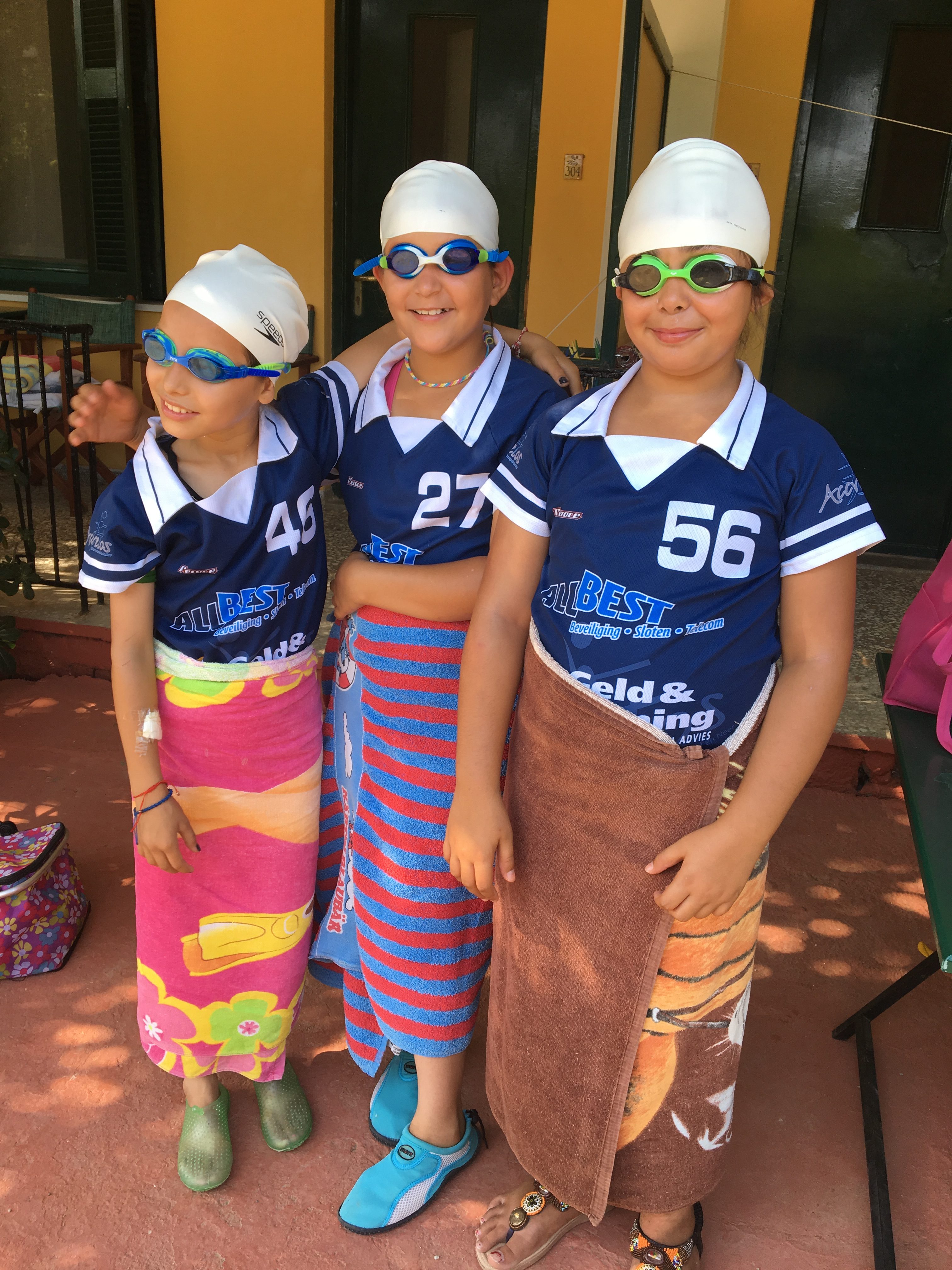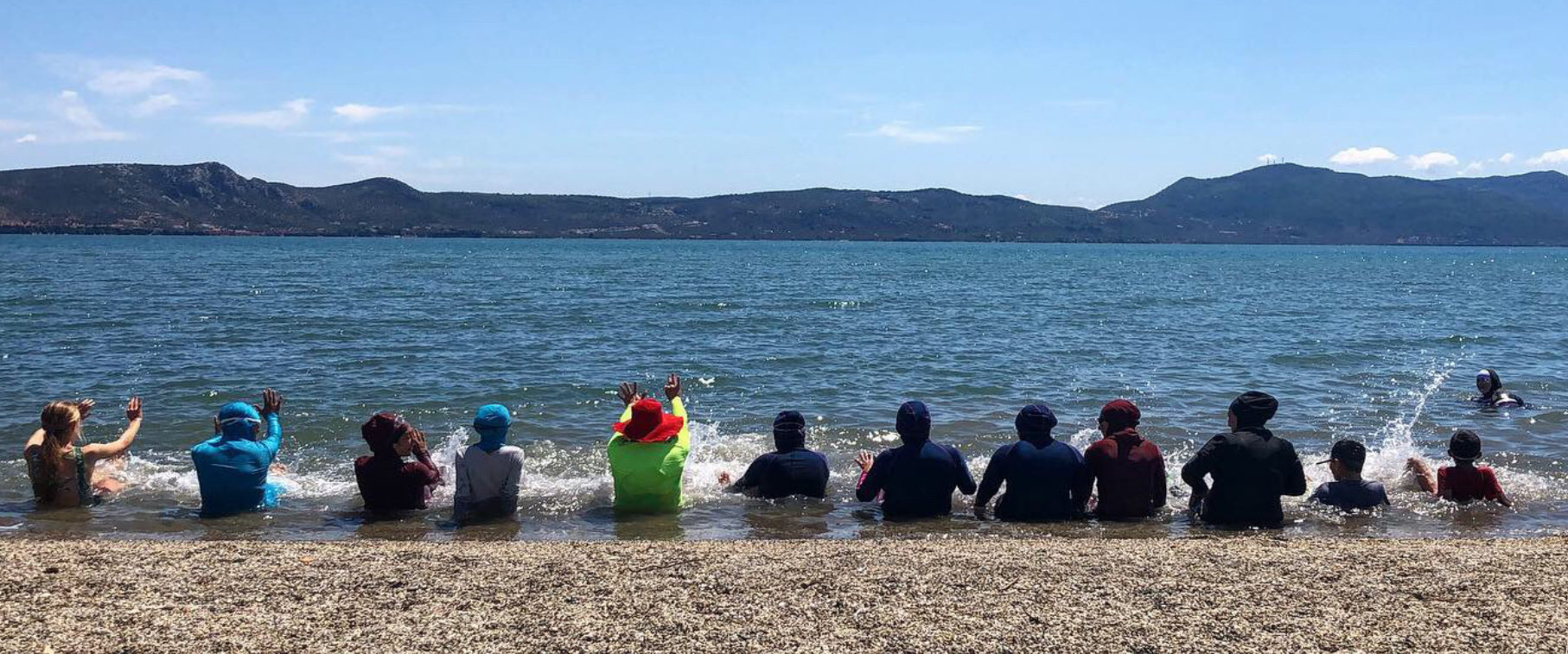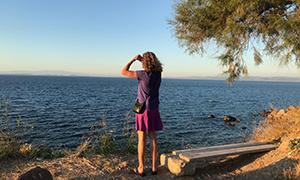By Angi Smith
I couldn’t ignore the tug in my heart when I read the article in the March/April SWIMMER magazine titled “Finding Refuge in the Water – ALTS-certified instructor teaches refugees how to swim”. After reading the article, I applied for a volunteer position with the non-profit organization Refugee Educational and Learning International (REAL), to teach unaccompanied minor refugee girls how to swim. Michele Cobble, founder of the REAL/Girls Empowerment Program, had spent three weeks in the summer of 2018 on the Greek island of Lesvos teaching unaccompanied minor refugee girls how to swim. She wanted to expand the program in 2019 as the need is so great. Michele successfully recruited eight volunteer swim instructors from around the world to work with these young women.
I was offered the lead swim instructor position at a refugee camp on the Greek island of Lesvos for the month of August. Volunteers must stay a minimum of 30 days to allow time to bond with the refugee girls. The volunteer instructors were asked to stay at Hotel Votsala as the owners were refugee-friendly, gave a discount to the volunteers, and allowed us to walk through their hotel grounds to access the semi-private beach where we taught lessons.
I arrived at the end of July to transition with the departing volunteers and to prepare to teach August 1. The morning swim lessons were with unaccompanied minor refugee girls from Safe Zone in Moria Camp. Conditions in the Moria Camp on the island were deplorable. The camp was designed to hold 1,500 people, and now holds over 12,000 people. During my five week stay in Lesvos, I watched the Aegean Boat Report, which reported that 600 to 1000 refugees fled daily from Turkey to the closest Greek islands of Chios, Samos, or Lesvos.
The afternoon swim lessons were with adolescent girls from the Skra and Eressou shelter houses. The girls were brought to us by a minivan accompanied by a chaperone who spoke broken English. The girls came from many different countries: Syria, Iran, Iraq, Afghanistan, Sudan, Congo, Cameroon, etc.
REAL provided swim suits, caps, swim masks, goggles, towels, birkinis/hijabs etc., part of which came from a generous donation from Loveland Masters. I learned quickly that swim shoes were required because of the rocky ocean bottom and numerous sea urchins. We did find a sandy beach and we taught most of our lessons there. I got enough sunscreen from what was left by departing guests at Hotel Votsala, and REAL bought oranges, bananas, and lemonade to share with the girls after every lesson. The girls used a hose from the side of the hotel to rinse off after each lesson, and we draped a sheet across our room terrace for them to change behind. Each day, the other volunteers and I rinsed all the birkinis, suits, goggles, etc. and hung them out to dry.
Most of the girls I worked with had little to no experience in the water. Many had very frightening experiences in their raft ride across the Aegean Sea from Turkey. One woman from Africa said, “I lost my daughter to the Aegean Sea”. We taught basic skills such as blowing bubbles, front floats, back floats, glides, and flutter kick, and introduced the strokes based on how quickly the girls learned. Not only was teaching in the ocean a challenge, we also had mostly non-English speaking students. A few girls knew some English and they helped us communicate with others.
A surprise to me was their desire to help each other learn – something we don’t always see in America where greed and self-centered behaviors often dominate our culture. When one young girl learned a skill like a front float, she wanted everyone to see her. As we stopped to watch, the other girls would scream, cheer or clap loudly to affirm her newly learned skill. The same student would wade over to each of the girls and speak in her native tongue, becoming the teacher for a moment, repeating words over and over until each girl successfully learned how to do the same skill. They would hold each other standing in the water, and sometimes sing a short song to celebrate. Afterward, the girls would look at me and say “teacher, more?”
Water games were a part of every lesson, and for me to watch and listen to the girls laugh, play, and enjoy a few precious minutes of their day – and momentarily forget about their dire situation in the refugee camps, was rewarding.
One of the chaperones, Mirsini, spoke English well and we conversed often. I asked Mirsini what the girls were fed in the refugee camps. I learned they had only two meals a day, which consisted of four olives, one half a cucumber, a hard-boiled egg, a tomato, and bread. I knew these girls were hungry, as I had seen them pulling figs off the trees on the hotel grounds and eating unripe pomegranates. One of the girls was stealing tomatoes and peppers from the hotel garden, and I had to talk to the chaperone about this though it was hard to say anything at all.
I learned about the bureaucracy within the Greek government and decisions made by the European Union (EU) that appeared to make the situation more dire and deplorable. If the Turkish Coast Guard intercepted a raft in Turkish waters, the rafts were forced back to Turkey and the refugees incarcerated for a year. Greece is too small to absorb the thousands of refugees escaping the horrific conditions in their home countries. Refugees who travel in large extended family groups are much safer, though often family members are killed on their journey. Many families with honorable intentions pay a smuggler to help their teenage children flee to seek asylum with other family relatives in Germany, France, and Great Britain. The bureaucracy prevents the children from getting to these countries even if they make it to a Greek island. The smugglers were hired to protect the teens on their journey to the Turkish coast, but they often raped the girls before putting them on the rafts. I did teach swimming to two teens who had toddlers. Most of the Greek people have welcomed the refugees, but the island of Lesvos has become dangerously overcrowded. There are now men who go out at night on the sea dressed in black and wearing masks, looking for the overcrowded refugee rafts and shoot or knife the rafts so they sink.
Yet, amidst all of this, these young women and girls wanted to learn and try, encourage and help each other, and expressed courage beyond anything I’ve ever seen before. I saw relief, joy, and hope through the simple act of listening and caring, and teaching basic swimming skills.
If you have any interest in volunteering your time next summer or want to learn more about REAL International and the Girls Empowerment Program (they teach biking to the refugees too), please contact Michele Cobble at michele@refugeeeducationandlearning.org. I’m also happy to answer any questions or share more about my experiences.

